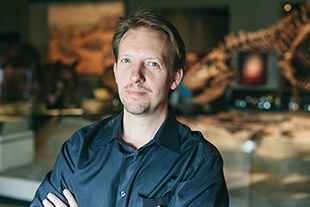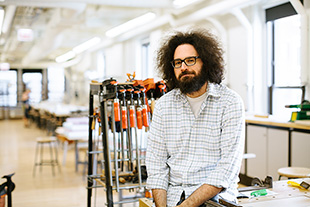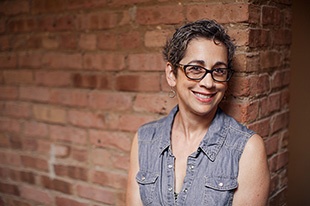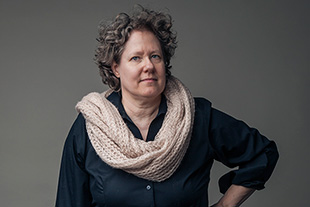Dana Connell
Fashion
Fashion Studies associate professor Dana Connell uses her classes to support nonprofits and encourage sustainability.
Early one morning in 1984, Dana Connell, associate professor of Fashion, gathered as many gowns as she could fit in her arms and threw them across the room.
She was the bridal manager of the Marshall Field’s State Street location at the time, and construction upstairs had caused the sprinklers to go off in a room filled with on-sale gowns. Connell walked in on the mess while heading to her office and dropped everything to rescue the merchandise. “I think I saved a few dresses that day,” she says.
Her retail career wasn’t all emergency gown rescues, though. Connell served as a buyer at Marshall Field’s and then Mark Shale for more than 20 years while working part time as an adjunct faculty member in Arts, Entertainment & Media Management (now Business and Entrepreneurship) before the fashion department was established in 2010.
“It was great because I was able to get jobs for our students. I was able to speak about the changes that were going on in the industry firsthand, and almost in real time,” she says.
Though the majority of Columbia’s faculty members still work in their fields, Connell focused solely on teaching a few years ago. In the classroom, she swears by hands-on projects.
“Our students at Columbia learn by doing, not by me standing up and talking, or me giving them a test,” Connell says.
Her classes have long partnered with Bridge to Success, a Chicago nonprofit that supplies business attire to men and women exiting rehabilitation. Students scouted store locations, collected donations, held fashion shows, and worked one-on-one with customers to put outfits together.
When the recession hit, Connell and her students helped develop a new business model that Bridge to Success still uses today. Donated clothes inappropriate for job interviews are now sold in a storefront, while Bridge to Success operates in the back, allowing the nonprofit to be more sustainable.
In an industry filled with “money, power, and materialism,” Connell says it’s important to teach students about waste and model ways to make a positive impact.
“You can just see, when [the clients] walk out of the fitting room, they stand taller, their shoulders are back, their heads are high,” Connell says. “They just look completely different when you get these clothes on them.”










